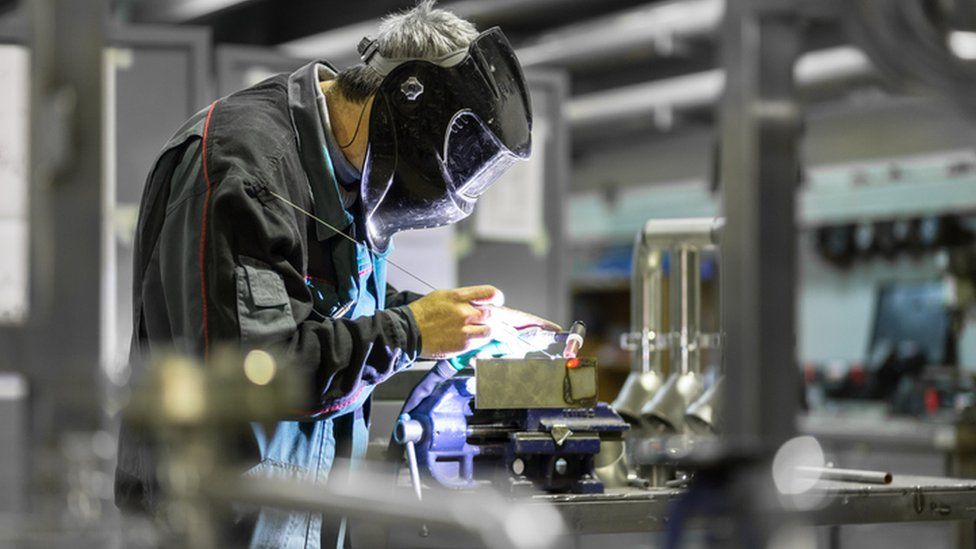CBI boss says Scotland still faces big Brexit risk
- Published
- comments

The head of the UK's biggest business group has said Scottish businesses continue to face big risks if Britain leaves the EU with no trade deal.
CBI Director General Carolyn Fairbairn said a no-deal Brexit could still cost Scotland £14bn a year, despite preparations being put in place.
Her comments came after a leaked UK government dossier warned of no deal food and medicine shortages.
Westminster ministers described the document as a "worst-case scenario".
Ms Fairbairn told BBC Radio's Good Morning Scotland programme: "One of the things the report does is, in a sense, it confirms a lot of what businesses have been saying in the last three years, which is that a no-deal Brexit would be a monumental act of self-harm.
Scottish impact
"The disruption, the long-term impact, the tariffs - these would all add up.
"We remain hugely concerned about a no-deal Brexit, hugely emphatic that the number one priority for government should be to get a deal."
Ms Fairbairn was speaking in Glasgow at the start of a UK-wide tour, ahead of the UK's planned departure from the EU in October.
She said: "The £14bn figure still holds true. We still think that is the potential impact on the Scottish economy.
The CBI director general also told the programme: "We are already seeing businesses having their contracts cancelled with European customers who are saying, 'this feels too complicated and risky dealing with you, therefore we are going to find other European suppliers'."
She added: "In Scotland, just-in-time manufacturing is a very important part of the Scottish economy - it's a real concern, it's one of the reasons why we're already seeing an impact of Brexit on our economy."
Ms Fairbairn said businesses were "fully understanding" that the UK was on the road to leaving the EU but that the "big question" was whether companies might ramp-up the stockpiling of raw materials, as they did to get ready for the original March departure date.
"That will be more difficult," she said, adding: "Warehousing is in short supply in the run-up to Christmas, it's the time when the growing season in the UK ends and begins in southern Europe.
"We see potentially more difficulties in October than we saw in March."
Prime Minister Boris Johnson is meeting EU leaders later this week, after saying there needs to be a new Brexit deal.
For the latest business news as it happens, follow BBC presenter Andrew Black's updates each weekday morning on BBC Radio Scotland's Good Morning Scotland programme between 0600 and 0900.